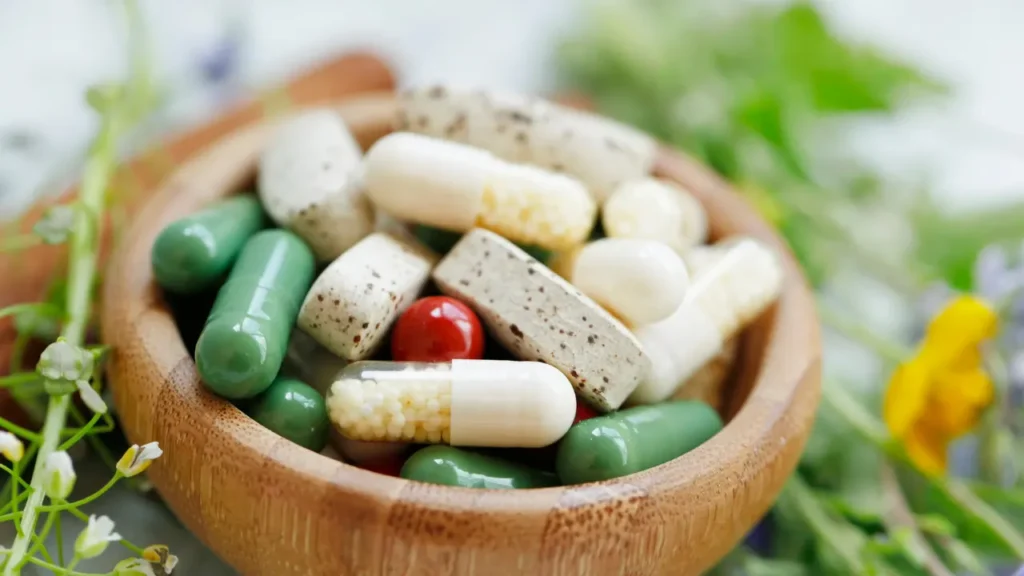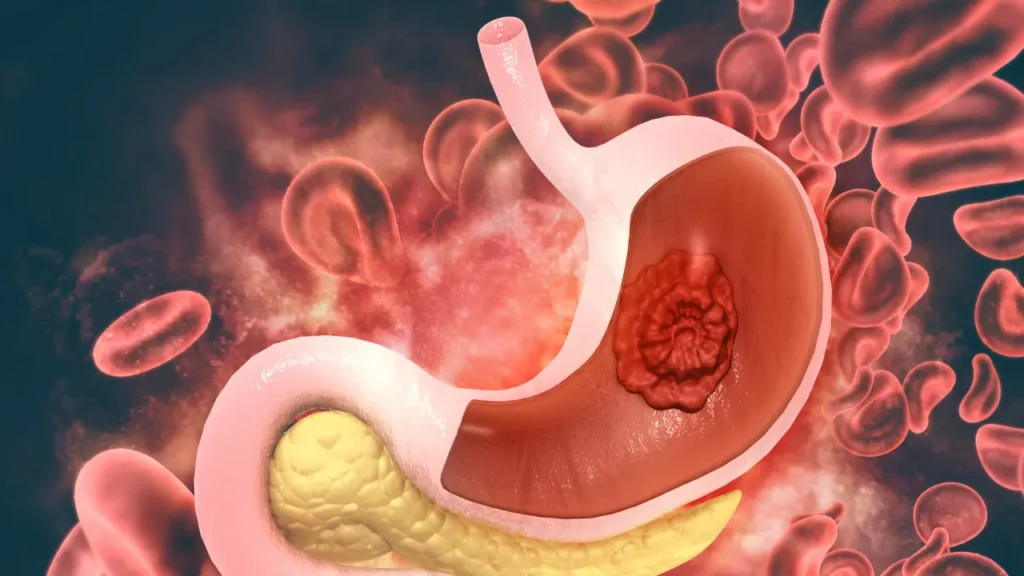The study of natural compounds for cognitive enhancement has recently become a recurring topic of research for scientific nuritionists.. Among the many substances studied for their nootropic potential, the scarlet pimpernel (anagallis arvensis) has piqued researchers’ interest. This flowering plant, known for its striking red flowers, has long been used in traditional medicine in numerous cultures, with claims of health benefits ranging from wound healing to mental health care. However, research into its potential as a cognitive enhancer is still in its early stages. This article will highlight scarlet pimpernel’s chemical ingredients, possible effects on the brain and body, potential health advantages, ideal dosages, side effects, substance interactions, and instructions for safe nootropic use.
You May Also Like:
Diamond CBD Gummies vs. Joy Organics CBD Gummies
Sunmed CBD vs. Partnered Process CBD: Finding the Best CBD for Sleep
Scarlet Pimpernel: Benefits, Dosage, Side Effects, Drug Interactions, And Other Important Information is an original (NootropicsPlanet) article.
Nature of Scarlet Pimpernel
The scarlet pimpernel (anagallis arvensis) is a tiny, low-lying plant known for its bright red flowers that open in sunshine and close in gloomy weather or when it gets dark. This trait has made it a symbol of adaptability and resilience. It thrives in a variety of environments, including fields, gardens, and roadsides. For centuries, it has been used in traditional medicine throughout cultures for its purported therapeutic characteristics, which range from treating wounds and respiratory ailments to serving as a diuretic.
Health Benefits
Health Benefits of Nootropic Substances
The scarlet pimpernel (anagallis arvensis) is a plant with roots in traditional medicine, known for its brilliant red blossoms and medicinal values. While its use as a nootropic supplement for cognitive enhancement is a relatively new idea, the plant has been linked to a variety of health advantages.
Antioxidant Properties
Scarlet pimpernel contains phytochemicals, notably flavonoids, that have high antioxidant properties. Antioxidants serve a critical priority in neutralizing free radicals, which are reactive chemicals that can cause oxidative stress and cell damage. In terms of brain health, oxidative stress has a role in aging and the development of neuro-degenerative illnesses such as Alzheimer’s and Parkinson’s. Scarlet pimpernel’s antioxidants can protect neural cells by minimizing oxidative stress, thus slowing cognitive decline and lowering the risk of neuro-degenerative disorders.
Anti-inflammatory Effects
Inflammation is a natural response to injury or pathogens, but persistent inflammation can cause a variety of health problems, including neurological illnesses. Scarlet pimpernel contains saponins and other anti-inflammatory chemicals, which can reduce inflammation. This is especially important for brain health because chronic inflammation in the brain has been related to cognitive decline and an increased risk of dementia. Scarlet pimpernel’s ability to modulate the body’s inflammatory response can benefit cognitive performance and brain health.
Enhancement of Cerebral Blood Flow
Although direct evidence is limited, several phytochemicals found in plants related to Scarlet pimpernel have been demonstrated to improve cerebral blood flow. Improved blood flow to the brain ensures a consistent supply of oxygen and nutrients, which are required to maintain cognitive skills such as memory, attention, and problem solving. Improving cerebral circulation can also aid in the clearance of metabolic wastes, potentially lowering the risk of stroke and benefiting general brain health.
Neuro-protective Potential
The Scarlet pimpernel’s antioxidant and anti-inflammatory properties suggest neuro-protective potential. Protecting the brain from oxidative damage and inflammation helps maintain neural tissue integrity and function. This neuro-protection is beneficial not only in elderly populations where cognitive loss is a worry, but also in those who have been exposed to disorders that can impair cognitive performance, such as stress, pollution, and poor diets.
Cognitive Enhancement
Scarlet pimpernel’s nootropic properties provide the most direct advantage in terms of cognitive performance. While the research is still in its early stages, the plant’s pharmacological ingredients suggest that it can improve memory, focus, and alertness. These developments can be useful not only to individuals wishing to improve their cognitive performance for scholastic or professional goals, but also to those hoping to retain cognitive function as they approach old age.

Chemistry of the Scarlet Pimpernel
Scarlet pimpernel includes a diverse range of phytochemicals, including saponins, flavonoids, and coumarin. These chemicals are thought to contribute to the plant’s pharmacological properties. Saponins, for example, have been demonstrated to regulate immunological responses and have anti-inflammatory properties. Flavonoids have been well-documented for their antioxidant properties, which can reduce oxidative stress, a contributing cause to cognitive impairment. Coumarins have numerous biological functions, including anti-fungal and antibacterial properties, but their relevance in cognitive enhancement is unclear.
Physiological Properties of Scarlet Pimpernel
Scarlet pimpernel’s cognitive-enhancing effects are thought to result from a variety of physiological pathways. Firstly, flavonoids’ antioxidant properties can protect neuronal cells from oxidative damage, hence preserving brain function. Additionally, saponins can impact neurotransmitter systems, but the precise causes for this are unknown. There is also evidence that some plant extracts can increase cerebral blood flow, which improves oxygen and nutrition delivery to the brain. However, the particular effects of scarlet pimpernel components on cerebral circulation have yet to be researched.

Optimal Dosage
Given the scarcity of scientific evidence, determining the ideal scarlet pimpernel dosage for cognitive enhancement is difficult. Traditional medicine dosages vary greatly and do not always indicate efficacy or safety as a nootropic. Clinical trials are required to determine safe and effective doses. Until such data becomes available, any use of scarlet pimpernel for cognitive improvement should be taken with caution, and consultation with a healthcare expert is recommended.
Side Effects
While scarlet pimpernel is widely regarded as harmless when used in traditional ways, the scarcity of rigorous safety research means that potential negative effects, particularly at doses higher than those commonly used in newer medicine, are poorly documented. Possible side effects include stomach discomfort, allergic reactions, and drug interactions. Individuals with pre-existing medical issues, as well as those who are pregnant or breastfeeding, should take extra precautions.

Potential Substance Interactions
Scarlet pimpernel’s interactions with other substances, such as pharmaceuticals, supplements, and specific meals, remain mostly unknown. Given its chemical complexity, there is a possibility of pharmacokinetic and pharmacodynamic interactions. For example, its impact on liver enzymes involved in drug metabolism can affect the efficacy or safety of other drugs. Individuals taking prescription medicines should contact a healthcare provider before using scarlet pimpernel as a supplement.
Best Responsible Use
For individuals interested in studying scarlet pimpernel’s cognitive-enhancing potential, responsible use is essential. This entails beginning with low doses, monitoring for side effects, and avoiding long-term use until additional data on safety and efficacy becomes available. It is also critical to purchase the supplement from a recognized manufacturer to ensure purity and consistency.
Scarlet Pimpernel:
Conclusion
Scarlet pimpernel, despite its intriguing name, has been associated with both potential benefits and safety concerns. In European folk medicine, it was once used as a medicinal herb for treating various conditions, including gallstones, cirrhosis, lung problems, kidney stones, urinary tract infections, dropsy, gout, and rheumatic conditions. However, it is essential to note that scarlet pimpernel can be toxic in higher doses, inducing vomiting, diarrhea, cramps, and even respiratory paralysis. Always consult with a healthcare professional before incorporating any herbal supplement into your routine.

References:
1. The Scarlet Pimpernel
https://www.simonandschuster.com/books/The-Scarlet-Pimpernel/Emmuska-Orczy/Enriched-Classics/9780743487740
2. Choy, R.A. Lewis, MD. “Cerebral Blood Flow: Determinants.” Anesthesiology Core Review: Part One Basic Exam. McGraw Hill Medical, 1. Retrieved from: https://www.scribd.com/document/338232760/anesthesiology-core-review-2014-edition-pdf-koudiai-vrg.
3. Dresler, Martin, et al. “Hacking the Brain: Dimensions of Cognitive Enhancement.” ACS Chemical Neuroscience, vol. 10, no. 3, 2019, pp. 1137–1148. Reyrieved from: https://www.ncbi.nlm.nih.gov/pmc/articles/PMC6429408/.
Important Note: The information contained in this article is for general informational purposes only, and should not be construed as health or medical advice, nor is it intended to diagnose, prevent, treat, or cure any disease or health condition. Before embarking on any diet, fitness regimen, or program of nutritional supplementation, it is advisable to consult your healthcare professional in order to determine its safety and probable efficacy in terms of your individual state of health.
Regarding Nutritional Supplements Or Other Non-Prescription Health Products: If any nutritional supplements or other non-prescription health products are mentioned in the foregoing article, any claims or statements made about them have not been evaluated by the U.S. Food and Drug Administration, and such nutritional supplements or other health products are not intended to diagnose, treat, cure, or prevent any disease.


